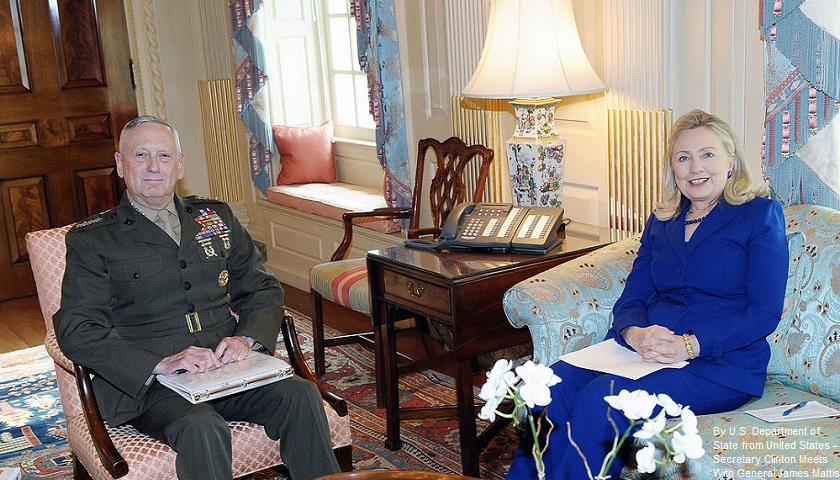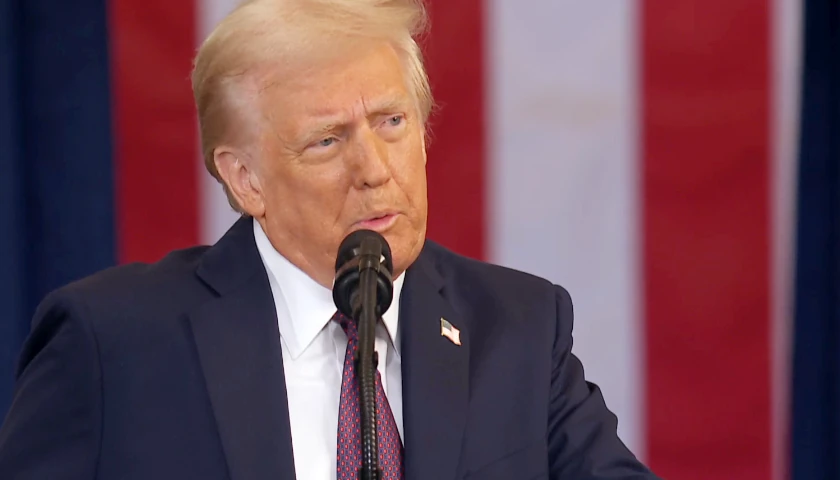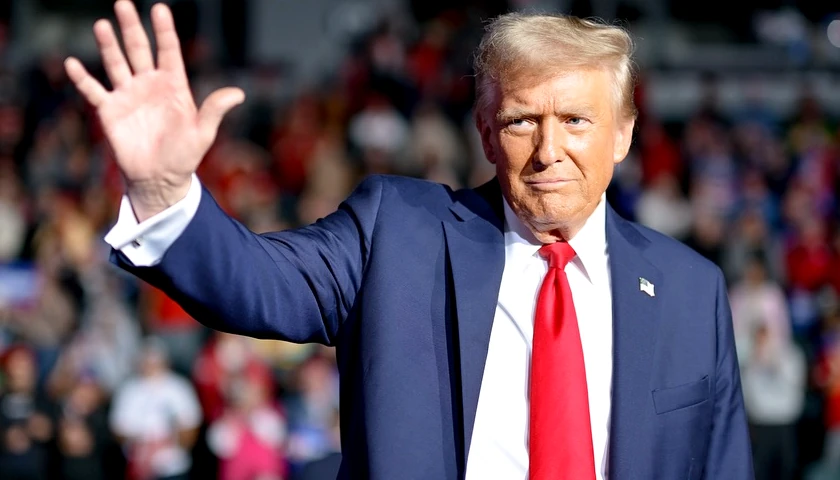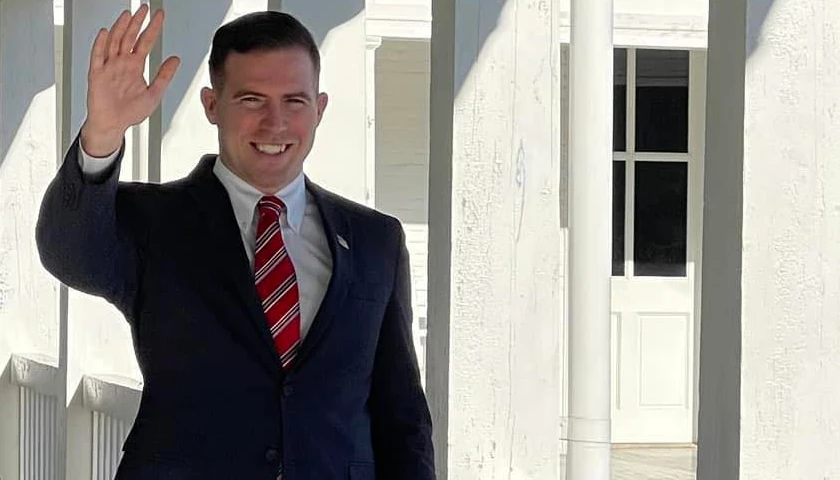Conservative HQ Staff
As CHQ Chairman Richard Viguerie has been telling CHQ readers for many years, “Personnel is policy.”
And unfortunately, right now pro-Trump conservatives are getting massacred in one of the biggest personnel and hence policy battles Washington has seen in many years – the battle to staff the Trump Pentagon.
The latest rout of conservatives at the hands of Secretary of Defense James Mattis, and the establishment James MattisRepublicans who occupy the White House Office of Presidential Personnel, came in the fight over who should be nominated as Secretary of the Navy to replace Philip Bilden, who decided to withdraw his name from consideration after saying that meeting the government’s ethics guidelines would require too great a financial sacrifice.
The scuttlebutt in the Pentagon and in the defense-oriented media is that today the White House will announce that the next SecNav nominee will be former Marine aviator Richard V. Spencer.
Spencer has had a distinguished business career after leaving the Marines. He worked on Wall Street for 15 years with Goldman Sachs, Merrill Lynch, Bear Sterns and Paine Webber and served as vice chairman and chief financial officer of intercontinental exchange. He is now an investment banker who currently heads Fall Creek Management LLC, a private, Wyoming-based consulting firm.
Spencer, like many other Mattis picks, is also part of the Hillary Clinton-aligned Center for a New American Security.
Why is this important if he’s qualified?
Because, as we keep saying over and over, personnel is policy, and the Center for a New American Security is about as anti-Trump on national security and defense policy as you can find in Washington today.
As just one example of how the CNAS holds positions contrary to what President Trump campaigned on let us share with you it’s comments on the recent chemical weapons attack in Syria.
“Now the Trump administration has laid down a red line,” said Nicholas Heras, an expert on Syria at the Center for a New American Security. “President Trump has said himself his view on Assad is changing. That sends a signal. If it is also accompanied by targeted strikes, it may also show he is contemplating a wider involvement there.”
After putting Obama’s words “red line” in President Trump’s mouth, Heras went on to suggest that a limited strike with weapons such as cruise missiles fired at regime airfields, or at assets owned by Assad’s family, could send the message that such attacks will no longer be tolerated.
We doubt Mr. Heras intends for the United States to bomb the Swiss banks where the Assad family’s most important assets are no doubt stashed, so you get the message about how useless and symbolic such a strategy would be, but this is exactly what happened.
Michele Flournoy, who runs CNAS and was expected to be Hillary Clinton’s Secretary of Defense, and whom Mattis wanted for his #2 at the Pentagon, had this to say to NPR’s Rachel Martin about further U.S. involvement in Syria:
MARTIN: Is it your understanding that the Trump administration has a clear strategy when it comes to Syria?
FLOURNOY: I don’t think they’ve sorted out their strategy for Syria as yet. As you mentioned, the president’s been very clear that he wants to go after ISIS, but to date, I don’t think he’s understand – stood how intertwined fighting ISIS and dealing with the Syrian regime really are on the ground.
MARTIN: But, as you know, the Obama administration was kind of locked in this push and pull between these two objectives – getting rid of Assad and getting rid of ISIS. And there was a lot of blowback on the administration for them not being able to achieve either. Can you do both?
FLOURNOY: You have to do both in that, you know, you – if you go after ISIS by itself and you don’t deal with the criminal nature of the Syrian regime which has been slaughtering civilians for many years now, you know, you can push ISIS out. But if you don’t create the conditions that are causing the radicalization, that are causing people to oppose the government, you’re not going to come up with a sustainable solution.
So, ultimately, you have to come to some kind of negotiated outcome in Syria. And I think what Trump is now realizing is that Bashar al-Assad cannot really be part of that ultimate outcome.
MARTIN: So what does that mean? I mean, we heard Ambassador Haley say the U.S. may act if the U.N. Security Council doesn’t. Does that mean the Pentagon is drawing up plans at this moment for some airstrikes in Syria?
FLOURNOY: You know, I would expect that President Trump will ask what his military options are, and there are certainly symbolic strikes that he could take on Syrian military objectives to symbolically signal that use of chemical weapons are not acceptable. But at this point in the conflict, those are not necessarily going to change the outcome or direction of the war.
Limited airstrikes? Symbolically signal? And other actions that admittedly “are not going to change the outcome or direction of the war”?
This is the kind of Obama-era quagmire-think that candidate Donald Trump promised to banish from the Pentagon and from American foreign and national security policy.
Yet General Mattis, for reasons that remain obscure to those on the outside, has insisted on hiring CNAS alumni and fighting a fierce bureaucratic war against hiring any pro-Trump conservatives who might question this kind of Obama-era nonsense.
What’s even worse is that once nominated and confirmed Spencer will be able to infect the Trump Navy secretariat with any number of non-Senate confirmed CNAS staffers. If Spencer brings the kind of thinking to the Navy that Michele Flournoy and her acolytes at the Center for a New American Security propound to his job as SecNav, to the President’s future regret, Spencer will become one more anti-Trump power center on the inside of an increasingly anti-Trump Pentagon.
Richard V. Spencer may be eminently qualified on paper to be the next Secretary of the Navy, but President Trump was not elected to continue Obama’s national security policies, or worse yet, implement Hillary Clinton’s. We urge the President not to nominate Richard V. Spencer to be the next Secretary of the Navy.
– – –





